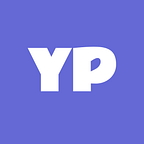Venushacks 2021: My first Hackathon
VenusHacks, held in collaboration with WICS and Hack at UCI, was UCI’s first online women-centric hackathon. They believed that by fostering the development and ingenuity of coding in an egalitarian culture, they will be able to inspire underprivileged citizens. It was open to people of all levels of ability (high school (18+), undergraduate, and graduate students) and aimed to increase participation in the tech sector by providing support, visibility, and awareness.
It was a 24-hour experience with networking opportunities, fun events, instructional seminars, and a lot of hustling! I was one of the many who entered the competition.
Background
A colleague and friend, Radhika Bhoj notified me about the hackathon, and a day before the event, we signed up and got our confirmation/shortlist emails. The event began with us forming teams a day prior to the event and an extra hour prior to the opening ceremony in case we were unable to do so earlier.
I was able to form a team a couple of hours before the hacking began. My team comprised of three incredibly skilled individuals, Mathilda Kay (Boston, USA), Kelly Wu (Ontario, Canada), and Akash Chowrasia (West Bengal, India).
My role
As the group’s only designer, I led the team through the define, research, and ideation phase. And when I was wireframing and finalizing the high fidelity design, the rest of the team began collaborating on the project’s backend and frontend.
Hacking begins!
1. Define
Problem Statement
Our users find it difficult to keep track of HRT (Hormone Replacement Therapy) medications, doses, records, and appointments. As a consequence, they are filled with anxiety, doubt, and stress as they make the transition. Our solution should provide them with a safe, private space to record and store transition-related data, as well as communicate with other people going through similar experiences.
Setting a timeline
We began by creating a timeline that gave us a general indication of how much time we might like to devote to each step of the project. And to account for the time difference that we as individuals had, we changed our schedules, roles, and responsibilities, bearing in mind our strengths, shortcomings, and skill set.
2. Research and Ideation
Primary Research
We gathered data for our primary research from a variety of online sources. In addition, we performed a brief survey to gather more problem-specific information.
Secondary Research
We resorted to using the tool, Miro to make notes of anything we may need to collaborate and work together as a team.
- Brainstorming and visualizing
We began the process by taking a few minutes to scribble down any thoughts, problems that the user may have, features, or emotions that the app could instill in its users.
- The MoSCoW model
The MoSCow model was then used to identify solutions to the issues that had been found, as well as to prioritize the features.
We described our problem brief after the analysis and ideation to better explain what and where our solution stands.
Problem Brief
Our platform should provide them with a forum where they can input critical details about their treatment (reports, documents, emotions, symptoms), receive data-driven recommendations, and connect with a community of people who are going through similar experiences.
3. Design and prototyping
I started the design process by creating a sitemap for the team to use and do their own assigned roles.
We used Figma to prototype and work on the design. We also recorded our documentation video using Figma's preview.
Link to Figma prototype
Link to our submission on Devpost.
Challenges, learnings, and achievements
Despite the fact that time limitations hindered us from doing in-depth testing, designing, updating, and implementing the code, we were able to create an egalitarian phase monitoring program that did not require the consumer to be gendered or make any assumptions about their physiology. We were able to collaborate and communicate effectively during the project.
Conclusion
VenusHacks 2021 was an impressive, well-organized, and exciting experience! I not only had the opportunity to engage with people from all walks of life, but I also had the opportunity to learn from them. My first hackathon was a huge success, and I wish all of my teammates the best and hope to keep in touch and collaborate with them in the future.
Thank you for taking the time to read through my article and for your encouragement as I made my debut on Medium!
